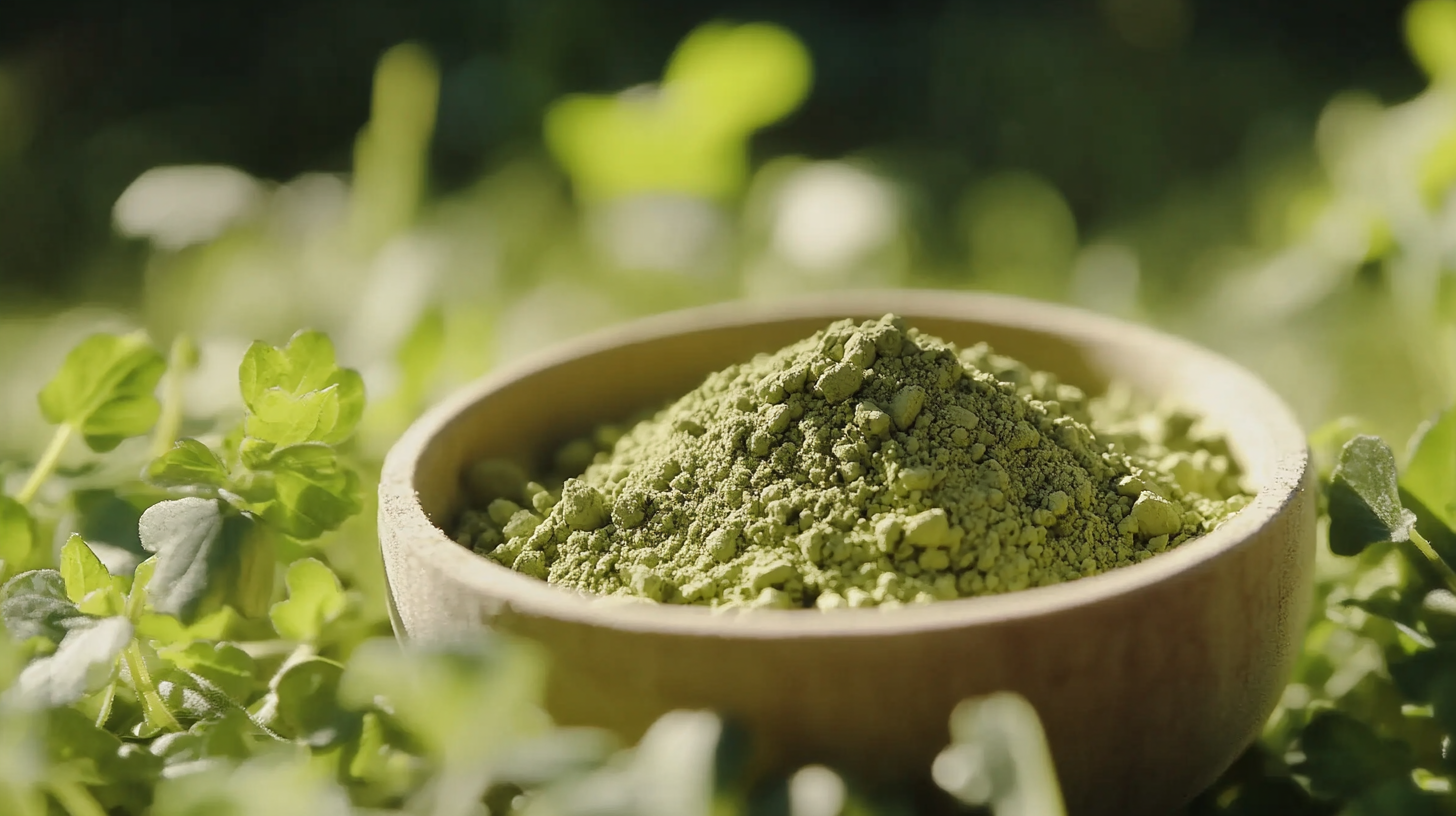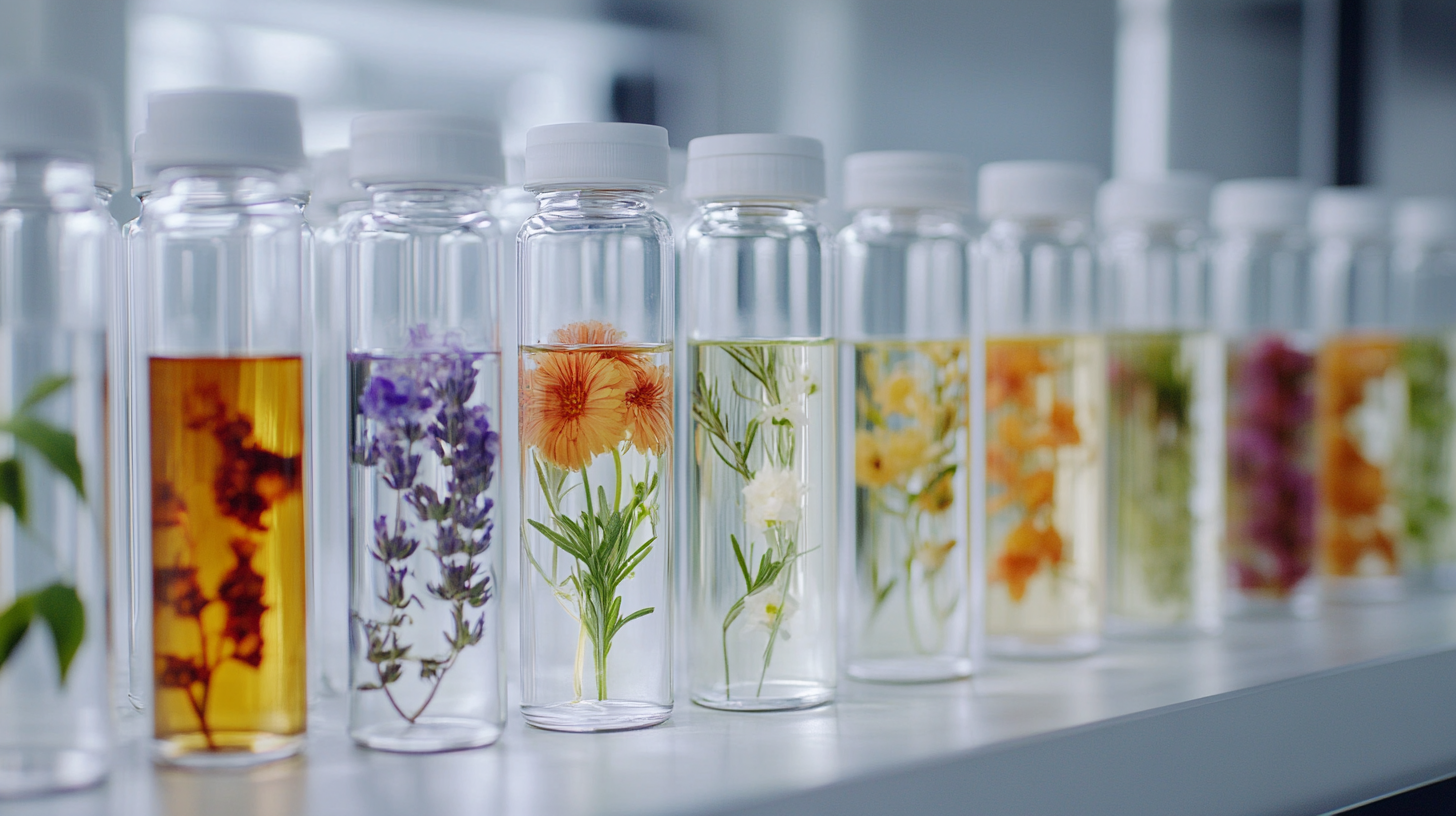Unlocking the Advantages of Natural Herb Extracts for Global Buyers
Due to the proliferation of consumer demand for natural and organic products, the Natural Herb Extracts global market observed a significant upsurge. Recently, it was reported by Grand View Research that the herbal extract market worldwide is expected to be worth USD 19.79 billion by 2025, with CAGR maximized at 7.1%. Rising health awareness over the benefits of herbal extracts-to be used in dietary supplements, food and beverages, and cosmetics- fuels the surge. The rapidly rising consumer consciousness towards products fitted with natural ingredients further widens the appeal for Natural Herb Extracts beyond conventional applications.
And so with this shift, sustainability and clean labels further invigorate the interest in Natural Herb Extracts from both producers and consumers. The global trend indicates that more customers would prefer plant-based alternatives over synthetic ones, in their ever-growing concern about health and environmental impact. Research and Markets project that the market for herbal supplements that rely extensively on Natural Herbs Extracts will take off, driven by lifestyle changes and demand for preventive healthcare. This means that a huge window of opportunity exists to cash in on all benefits of Natural Herb Extracts for buyers across the globe looking to stay ahead of changing customer demands while promoting sustainability and wellness.

Emerging Trends in Natural Herb Extracts in the Global Market
Natural herbal extract industries are going through major changes in the world market, mainly due to increasing consumer awareness about health-oriented products and sustainable sourcing. The companies stand in a unique position to channel the potential for these extracts to satisfy ever-changing needs of global buyers since popularization of herbal remedies continues to illuminate these extracts' benefits. The trend toward clean and green ingredient sourcing is increasing the desire for herbal solutions over synthesized alternatives in food, cosmetics, and pharmacy, among other industries. One important trend is the introduction of personalized remedies born from technological advancements in understanding individual health conditions. This signals a turning point for consumers to expect products tailored to their particular wellness goals. Above all, it is sourcing and processing transparency considered significant today as consumers generally prefer to support brands that abide by ethical sourcing and tracing procedures. Any companies conveying the source and benefits of their herbal products find themselves in a win-win situation in such a competitive marketplace. Moreover, by merging traditional knowledge with modern science, contemporary formulations are created to actualize the herb extract's natural potency. This requires cooperation between researchers and manufacturers to integrate ancient herbal wisdom with current health trends, resulting in products that combine efficacy with appeal to the modern consumer lifestyle. The interaction of tradition and innovative science creates a bright possibility for natural herb extracts in the global market, meeting the diverse medical and cosmetic needs of the informed consumers of today.

Key Benefits of Incorporating Natural Herb Extracts in Consumer Products
In the recent times, the market across the globe has entered into a growing phase of natural herb extract consumption endowed with many applications in consumer products in different industries. Such extracts obtained from medicinal plants encompass the legacy of traditional practices and modern fitness and wellness trends. Therefore, increasing demand for natural and effective solutions has facilitated organizations to adopt herbal inputs as some of the differentiation approaches in a competitive environment.
Herbal extracts are not only beneficial in therapeutic aspects but also in their multiple applications. The beauty industry has been no exception since herbal ingredients have already found its access in rejuvenating skin benefits and healthier skin within skin care formulations. With a similar vein, the food and beverage sectors have seen a wave of reinvigoration in the forefront of herbal infusion, appealing to a health-conscious clientele eager in functional wellness offerings such as calming teas or energizing tonics.
The new generation of Environmental, Social and Governance (ESG) values compels marketers to tell good stories about their natural ingredients. Consumers are drawn to such brands that embrace transparency and ethical sourcing in a world where sustainability and responsible sourcing are important. While innovation is transforming, this is not only bringing natural herb extracts into consumer products in line with market demands, but also weaving their lifestyle into products otherwise.

Sourcing and Quality Control: Challenges for International Buyers
In the ever-evolving landscape of natural herbs extracts, sourcing and quality-control mechanisms stand out as key considerations for international buyers. The overall process starts with selecting suppliers who practice stringent quality management. Suppliers should put into place effective supplier quality management (SQM) programs that will help them track their performance with great scrutiny. This includes continuous appraisals to ensure that the procured materials comply with the established quality profile and standards, which is vital not only for their legal compliance but also for establishing long-term partnerships with these suppliers.
The challenges are made all the more difficult because of this convoluted situation surrounding sourcing on a global level. Procurements in such areas as industrial construction have discussed how complicated sourcing schemes could heavily impact the overall success of a given project. These buyers are attempting to navigate different regulatory environments that vary widely from one region to another and ensure their suppliers can meet these varying standards in short order. Setting up proper quality control measures will become a priority, guarding against any undesirable events arising out of the supply chain.
Innovative technologies have catalyzed the modernization and improvement of quality assurance practices. The so-called "smart quality" approach travel acceleration should, at least, include industries such as pharma and medtech. For international buyers of natural herb extracts, this implies that visibility through the supply chain is enhanced through advanced technologies and data analysis tracking. By focusing on quality at each stage from the point of sourcing to delivery, buyers can reduce risk and exploit all opportunities of natural herb extracts in this highly competitive environment.

Sustainable Practices: The Future of Herb Extraction and Trade
The harmonization of trade and extraction practices across the world is shifting to the use of sustainable methods as a result of the interest generated in herbal extracts that are naturally produced. This reinforces the trend where consumers now increasingly seek products that in turn affect the herb extraction industry to align its practices toward such ideals. Thus, they render these processes highly environment-friendly and relatable to a significant group of consumable customers around the world.
Global advancement in herb market features signifies the effects waiting to be experienced. For instance, projections from the UK are outlining significant growth for the energy drink market within its borders, which will drive up the prospects of including herbal ingredients in beverage formulations. At the same time, China is strengthening its foothold in herbal trade by importing medicinal herbs from Russia to process and export them to Asia. Such measures not only boost economical interdependence, but say much about the ways of sustainable sourcing and ethical production as well.
Events such as the International Traditional Chinese Medicine Expo in Bozhou also indicate the vitality of the cultural and economic extraction processes of herbs. They themselves are traditional approaches with innovative modern accents, fostering cooperation and into exchange many players around the world at the same time. As market herbal extracts grow, sustainability will be among the major paths to the future responsible and profitable future of herb extraction and trade.
Cultural Significance: Understanding Global Uses of Herb Extracts
Historical significance of herbal extracts in cultural practices around the world represents a thick layer of traditions and applications. As per a Research and Markets report, the globe herbal extract market shall reach $40 Billion by 2027 underpinned by rising consumer awareness about the health benefits of natural constituents. In different cultures, these extracts have found application not only in food but also in medicine and ceremonial purposes, emphasizing their importance in various lifestyles.
For example, in Asia, traditional systems of medicine such as Ayurveda and Traditional Chinese Medicine employ herb extracts like turmeric and ginseng for curative purposes. In the Journal of Ethnopharmacology, a study has described the medicinal properties of these herbs believed to enhance well-being and longevity. Interestingly, in Europe, the trend has slowly begun to include herbal extracts in food products and supplements, thereby justifying the need for healthy consumption. The use of adaptogens, herbs that are said to help an individual adapt to stress, is booming in popularity in the European market.
Herbs are cultural, and we cannot separate their health benefits from the history and culture that they belong to. Herbal extracts are part of rituals and social practices. The Indigenous communities worldwide have invariably used local herb extracts in spiritual ceremonies to connect their culture and identity to the environment. By recognizing these varied usages and cultural contexts, global buyers will be able to fully exploit the potential of the natural herb extracts, in both respecting traditional usages and innovating in modern ones.
